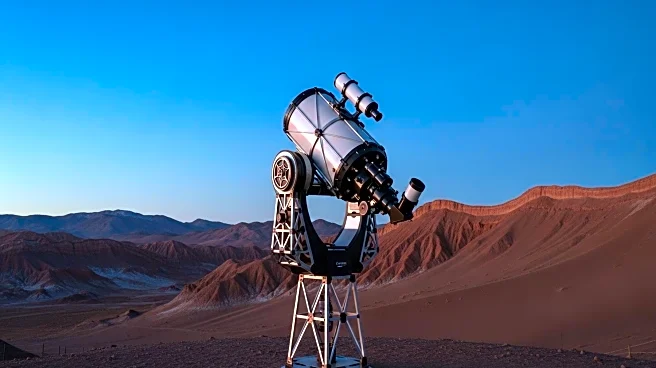What is the story about?
What's Happening?
The Atacama Desert in Chile, known for its clear skies and minimal light pollution, hosts some of the world's most advanced telescopes. These include facilities managed by the US National Science Foundation's NOIRLab, which operates observatories like Cerro Tololo and Cerro Pachón. These sites are crucial for ground-based optical and infrared astronomy, enabling significant scientific discoveries. The telescopes are used to study a wide range of astronomical phenomena, from near-Earth objects to distant galaxies.
Why It's Important?
The telescopes in the Atacama Desert play a vital role in advancing our understanding of the universe. They provide critical data for research in astrophysics and cosmology, contributing to discoveries about the nature of dark matter, the formation of galaxies, and the behavior of celestial bodies. The work conducted at these observatories supports international collaborations and enhances the global scientific community's ability to explore space. The presence of such facilities also underscores the importance of preserving dark-sky environments for scientific research.
Beyond the Headlines
The operation of these telescopes involves significant international collaboration and investment in infrastructure. The research conducted here not only advances scientific knowledge but also fosters educational opportunities and technological innovation. The observatories' presence in Chile highlights the country's strategic importance in global astronomy and the need for continued support and development of such facilities.

















